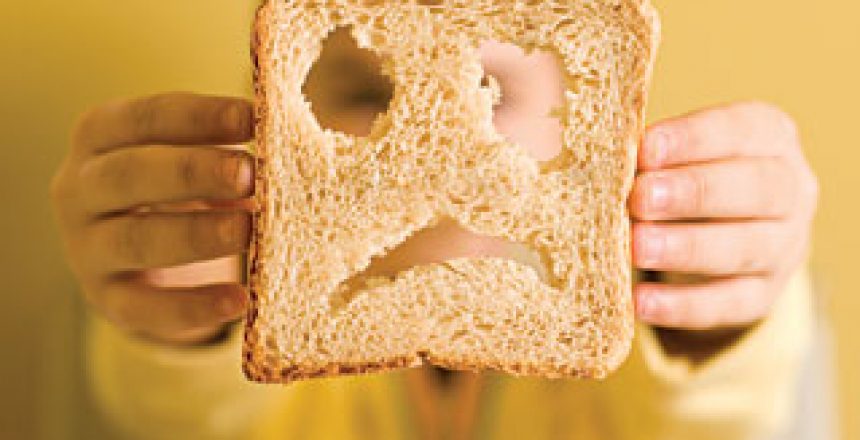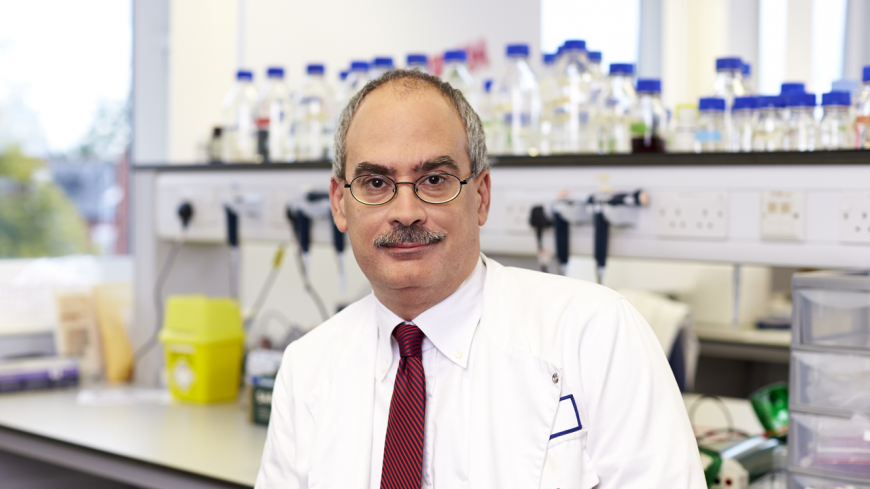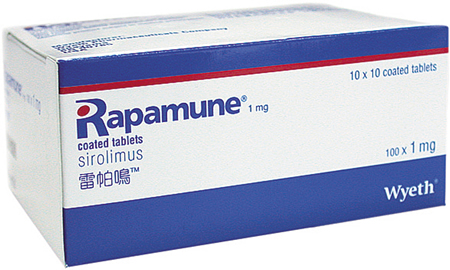I had an email the other day. It came through my contact form and the name given was Anonymous, with a fake email address. So I have no idea who this person is, whether this person is even a man or a woman, or location of said person. I’m going to selectively quote and paraphrase it here.
I owe you a massive thank you.
He (or she) goes on to say that he was close to being bed ridden and was suicidal. He had tried some things I suggested on this blog, presumably for depression, such as light therapy and magnesium, and while he still uses these, the effects were not terribly dramatic. Then he read my post, N-acetylcysteine treats fatigue and ADHD in lupus, reduces DNA damage, and is dirt cheap compared to normal medication, and said that it changed his life.
He had had undiagnosed celiac disease for many years, and dozens of doctors had been unable to help him, and were starting to say that he should consider that he might have to live the rest of his life utterly handicapped, “a cripple”. Then, after reading the post, he started taking n-acetylcysteine at 1800 mg a day. He now says that he can exercise, the suicidal thoughts are gone, he’s in a great mood, and that he’s “just plain feeling great”.
Thank you so much. You really saved me.
I’ve bought all your books and will continue to follow you religiously.
That, as the reader may imagine, is very gratifying to hear. Sometimes I think that some of the things I write about are either too academic, on the one hand, or already well-known at least in our neck of the woods, on the other.
In that post, I referred to a couple of studies that showed that NAC significantly improved the symptoms of lupus, and at a cost miles below that of conventional meds. The cost is one reason you won’t hear much about this treatment, since there’s no huge profit for drug companies to grab. Another reason is that NAC is over-the-counter, so the doctors’ gatekeeping and fee-collecting function is bypassed.
Celiac disease involves a pathological intolerance to gluten, and it can be without symptoms, so that damage accumulates and people do indeed end up bedridden and in wheelchairs from it. High levels of oxidative stress and inflammation characterize this disease. Oxidative stress causes low levels of glutathione, the internal antioxidant that is responsible for controlling this stress. In effect, oxidative stress depletes glutathione, and without proper nutrition, it remains depleted, causing more oxidative stress in a vicious cycle. You may recall that glutathione is a tripeptide, that is, it’s composed of three amino acids, and the bottleneck, the rate-limiting amino acid, is cysteine. If cysteine can be supplied, along with adequate protein, then glutathione can be restored and oxidative stress brought under control. N-acetylcysteine supplies cysteine.
Another aspect of n-acetylcysteine is that it can help control the intestinal barrier function. This is important in celiac, as well as chronic fatigue and depression.
Giving the body the tools to heal itself can be powerful.










20 Comments
I can also testify to this.
One symptom of Hep C can be great depression and exhaustion and the feeling one never sleeps yet never wants to get out out of bed. One of the first things I did to help myself was buy some l-cycteine. I took about 1,500g, maybe more on going to bed and in the morning felt like a new man. Jumped out of bed, walked the dog, looked amazed at the world. My recovery, which took years, obviously started at that breakthrough moment.
George, that’s an amazing story.
Excellent post Mr. Mangan
I’ve been taking it for a while now and I can’t say my results have been anywhere near that dramatic, I still suffer from severe, soul crushing depression. But it does seem to help a bit.
I started taking 600mg/d in January as a prophylaxis. Can’t say that I’ve noticed any difference, but neither was I expecting one. My dark moods, such that I have, are in the well-known category of “depressed individuals make more realistic inferences than do non-depressed.” I think my only available treatment is ignorance. 🙂
Or is 600mg akin to the RDA on vitamin D, which is to say not worth the bother?
The real reason I’m commenting is that this post seems a fitting occasion for me to repeat my earlier request for a post on timing of all these various supplements. It’s funny in that I was going to repeat my ask on the L-citrulline post since Matt Forney that you linked to was very explicit that one must take it on an empty stomach which made me think, hey, I should send Denis a friendly nag. Then the L-citrulline post kind of got buried by more recent posts and I started thinking well, maybe it can wait if he’s got a lot on deck. And then, in George’s comment here he mentioned taking NAC right before bed, and I recall you saying a strong anti-oxidant, such as NAC is, should be taken in a non-fasted state, which I took to mean with a meal or, at least, relatively soon after one. Did you mean truly, physiologically fasted, ie. burning ketones & active autophagy?
Anyway, a timing supplements post if you please.
Thank you, and best regards.
Thanks, Allan, I’ll see what I can do about a post on that topic. As for your question about 600 mg NAC, I think, as an educated guess, that an otherwise healthy, youngish person would not need more than that. Someone with a serious illness probably needs more and/or longer duration of supplementing to see some effect. In one study, HIV pos people were taking it in amounts up to, I believe, 8 grams daily. “Massive loss of sulfur in HIV infection” showed that *asymptomatic* HIV patients lost up to the equivalent of 10 grams of cysteine *daily*, or 2 kg a year. “The abnormally high sulfate/urea ratio suggests that this process drains largely the glutathione pool.” So one needs a lot of NAC and or whey to make up that kind of loss, which by itself could probably account for the wasting seen in HIV. Seems probably in any case of chronic infection, perhaps such as hepatitis C, that may be the case.
In my opinion, NAC should be taken with a meal, since other amino acids, namely glycine and glutamine, are needed for glutathione synthesis, and that’s what NAC is for. Glutamate (from glutamine) appears to be at the same level in older and less healthy people, but glycine levels definitely diminish. (See Deficient synthesis of glutathione underlies oxidative stress in aging and can be corrected by dietary cysteine and glycine supplementation. I’m calling dibs on a post on that paper.) NAC is somewhat mistakenly called an antioxidant. Once ingested, it is rapidly taken up by cells and incorporated into glutathione and other proteins/peptides. The real antioxidant is glutathione, and not enough NAC is in the sytem long enough to be one, although it may function as one if, say, taken right before a workout. If placed into a culture medium, say with C. elegans, then it is not made into glutathione and functions as an antioxidant.
Mr Mangan,
Sorry to hear about what happened to your mother but bravo for the heroic and beautiful support you have thus far provided. I do hope everything will turn out for the best. Thank you for sharing this story.
I have myself adopted a position of watchfulness and circumspection when a parent ends up in hospital. Many have unfortunate anecdotes to tell, alas !
I have been interested in NAC for a parent of mine and, while researching it, I have encountered this article which I submit to your trained eye.
https://stm.sciencemag.org/content/6/221/221ra15
Two replies seem to somewhat invalidate the findings; the researcher doesn’t list this article on his current univesity page.
https://stm.sciencemag.org/content/6/221/221ra15/reply#scitransmed_el_24720
NAC : harmful or not ?
D, thanks. I have seen that study, and it may not be totally without merit, so far as I can tell, although the replies deserve study also as well. Here’s an article on NAC as chemopreventative for lung cancer: https://onlinelibrary.wiley.com/doi/10.1002/jcb.240590805/abstract
Another that states that NAC also prevents cancer in vivo: https://europepmc.org/abstract/med/10496534
I don’t believe that large quantities of NAC should be taken unless shown to be necessary. But also, NAC is proven to relieve oxidative stress and is helpful in many conditions in which oxidative stress plays a part from chronic fatigue to major depression to HIV.
What do you think of this paragraph? “NAC inhibits the clearance of disease-related proteins
As high doses of NAC impair autophagy, we tested whether it also impaired clearance of disease-related autophagy substrates in neuronal cell models. We found that NAC was able to impair the clearance of an autophagy substrate, haemagglutinin (HA)-tagged mutant A53T α-synuclein, a soluble protein that causes a form of familial PD (22). NAC also significantly impaired the ability of rapamycin to enhance clearance of this substrate (Fig. 4A). Similarly, we found that NAC increased the percentage of cells with aggregates of enhanced green fluorescent protein (EGFP)-tagged mutant huntingtin exon 1 and impaired the ability of trehalose to decrease the percentage of cells with aggregates, a phenomenon that is autophagy dependent (8) (Fig. 4B and C). ”
It is from:
https://www.vivabioscience.com/products/autophagy-research-products/autophagy-inhibitors/n-acetyl-l-cysteine.html
There are several sites that say N-A-C is an antioxidant that inhibits autophagy.
I’d try to explain it to you, but you wouldn’t understand it.
Food inhibits autophagy too.
As I am apparently too nescient to understand such things then please explain it for your august readers. There are several well-wrought reports that say NAC impairs autophagy. Your articles and (relevant book material) say NAC facilitates autophagy. There is an apparent conflict. Requesting an explanation is not unreasonable.
I don’t recall writing that NAC facilitates autophagy, and if I did, I was mistaken. NAc is used to replenish glutathione.
Oh how I wish I knew more about chemistry than I do (I was not allowed to take it.) I have gone back and reread. If I crudely understand the trail NAC increases cysteine and cysteine increases glutathione which is an internal anti-oxidant to maintain oxidative balance. (When free radicals go up, amino acids should be used by the body to make glutathione to bring that back into balance. As we age, that process is less efficient via age, eating less protein, digesting protein more poorly et cetera.) As autophagy does down oxadative stress goes up, thus signaling — I infer — the production of more gluthathione. Thus taking NAC is the first step in a process that increases the anti-oxidant glutathione and this reduces oxidative stress. That should facilitate autophagy. In other words if the body is young it is in balance, if older probably not. Taking NAC can help bring that back into balance allowing autophagy to proceed/work. Yet the paragraph I cited above says high does of NAC “impair autophagy” whereas my understanding from your writing is that it brings about a state in which it can happen which would be facilitating autophagy not impairing it. Therein lies my confusion. Perhaps the rub lies in the dose.
Basically if you take NAC to increase glutathione, you want to take it in the fed state, because it may – may – inhibit autophagy. Vitamin C does so, though NAC is not in the same category as an antioxidant. One of the functions of autophagy is to release cysteine, which is used to make glutathione. So high glutathione may inhibit autophagy, low glutathione promote it, and the same may be true of NAC.
I just wanted to let everyone know that I had the exact same situation. NAC SAVED MY LIFE! It really did. I honestly couldn’t figure out with any doctors, and here I am back with NAC.
I really think this is the Super Medicine that is probably needed by most people when there is any illness!!!
It’s insane!!! I wished I knew about this loooong time ago. They should teach this in school. I mean like high school!!!
I’ve been taking NAC for about a year and have noticed absolutely no change in mood or health. Of course, I take so many supplements its hard to tell what does what.
Just want to add this: Be careful of NAC after drinking. There’s at least one study showing that it actually worsens damage done to the liver by alcohol if taken AFTER drinking (in mice, I believe). But when taken before it decreases damage. Google around on longecity and /r/nootropics for discussion and actual sources.